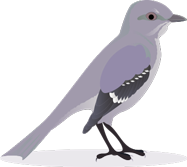
[ad_1]
Wildlife consultants in Washington, D.C., and close by states say they haven’t recognized the reason for latest deaths of many birds within the area, however they’re encouraging the general public to briefly stop feeding birds to keep away from the potential unfold of illness at feeders.
In late May, wildlife managers and rehabbers in Washington D.C., Virginia, Maryland, and West Virginia started receiving studies of sick and dying birds with eye swelling and crusty discharge, in addition to neurological indicators.
The District of Columbia Department of Energy and Environment, Maryland Department of Natural Resources, West Virginia Division of Natural Resources, Virginia Department of Wildlife Resources, and National Park Service are persevering with to work with diagnostic laboratories to analyze the reason for mortality. Those laboratories embrace the USGS National Wildlife Health Center, the University of Georgia Southeastern Cooperative Wildlife Disease Study, and the University of Pennsylvania Wildlife Futures Program.
A report on the National Wildlife Health Center’s WHISPers website, which summarizes incidents of wildlife diseases and mortality nationwide, exhibits 37 useless or sick birds — Common Grackles, Blue Jays, American Robins, and European Starlings — from a number of counties in Virginia on May 20.
Birds congregating at feeders and baths can transmit illness to 1 one other. Therefore, the state and district businesses suggest that the general public within the outbreak space:
- Cease feeding birds till this wildlife mortality occasion has concluded;
- Clean feeders and hen baths with a ten% bleach resolution;
- Avoid dealing with birds, however put on disposable gloves if dealing with is critical; and
- Keep pets away from sick or useless birds as a normal precaution.
If you encounter sick or useless birds, please contact your state or district wildlife conservation company. If you should take away useless birds, place them in a sealable plastic bag to dispose with family trash. Additional data might be shared as diagnostic outcomes are acquired.
Thanks to the U.S. Geological Survey for offering this information.

Read our e-newsletter!
Sign up for our free e-newsletter to obtain information, photographs of birds, attracting and ID ideas, and extra delivered to your inbox.
Sign Up for Free
Source www.birdwatchingdaily.com






